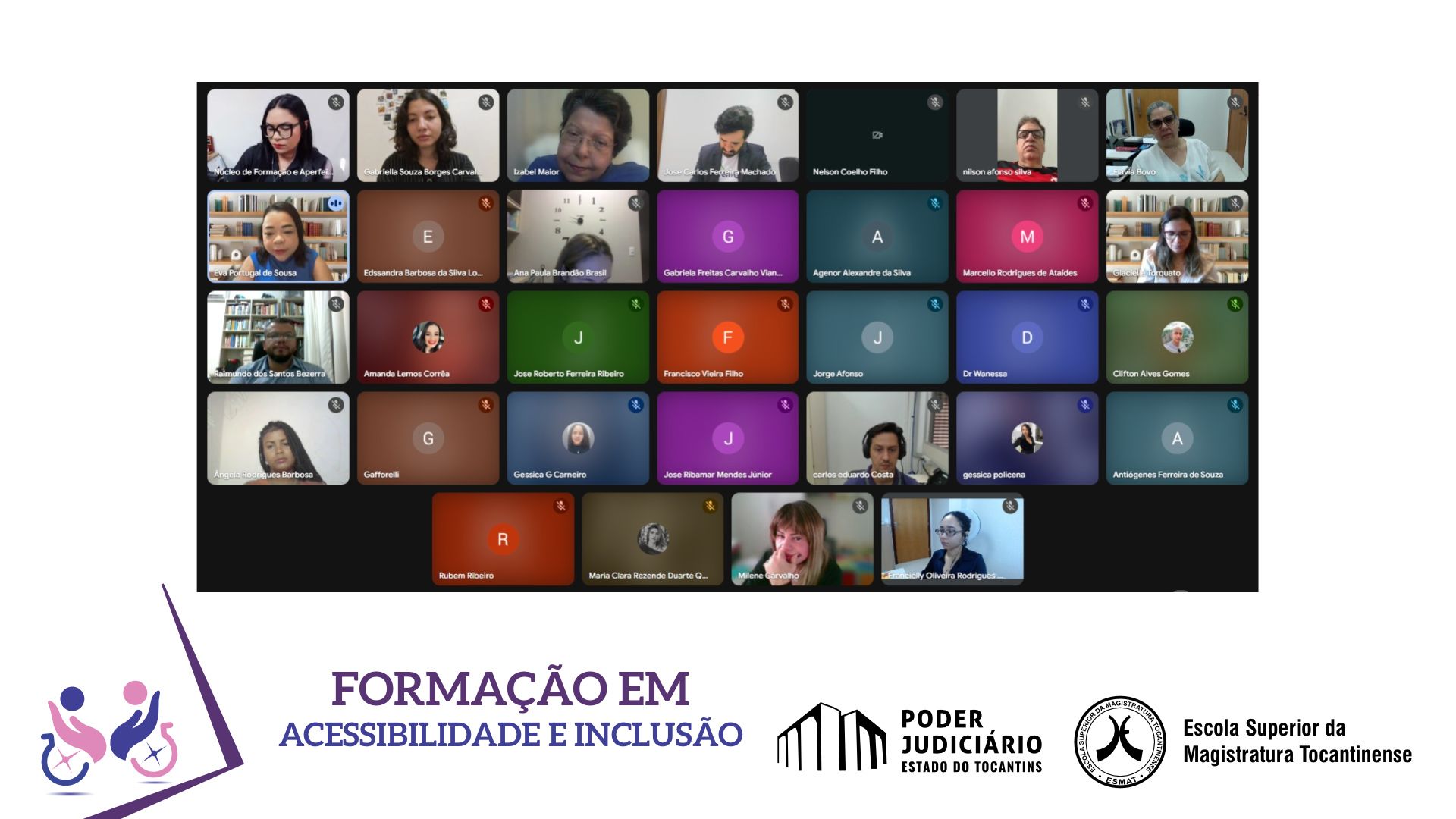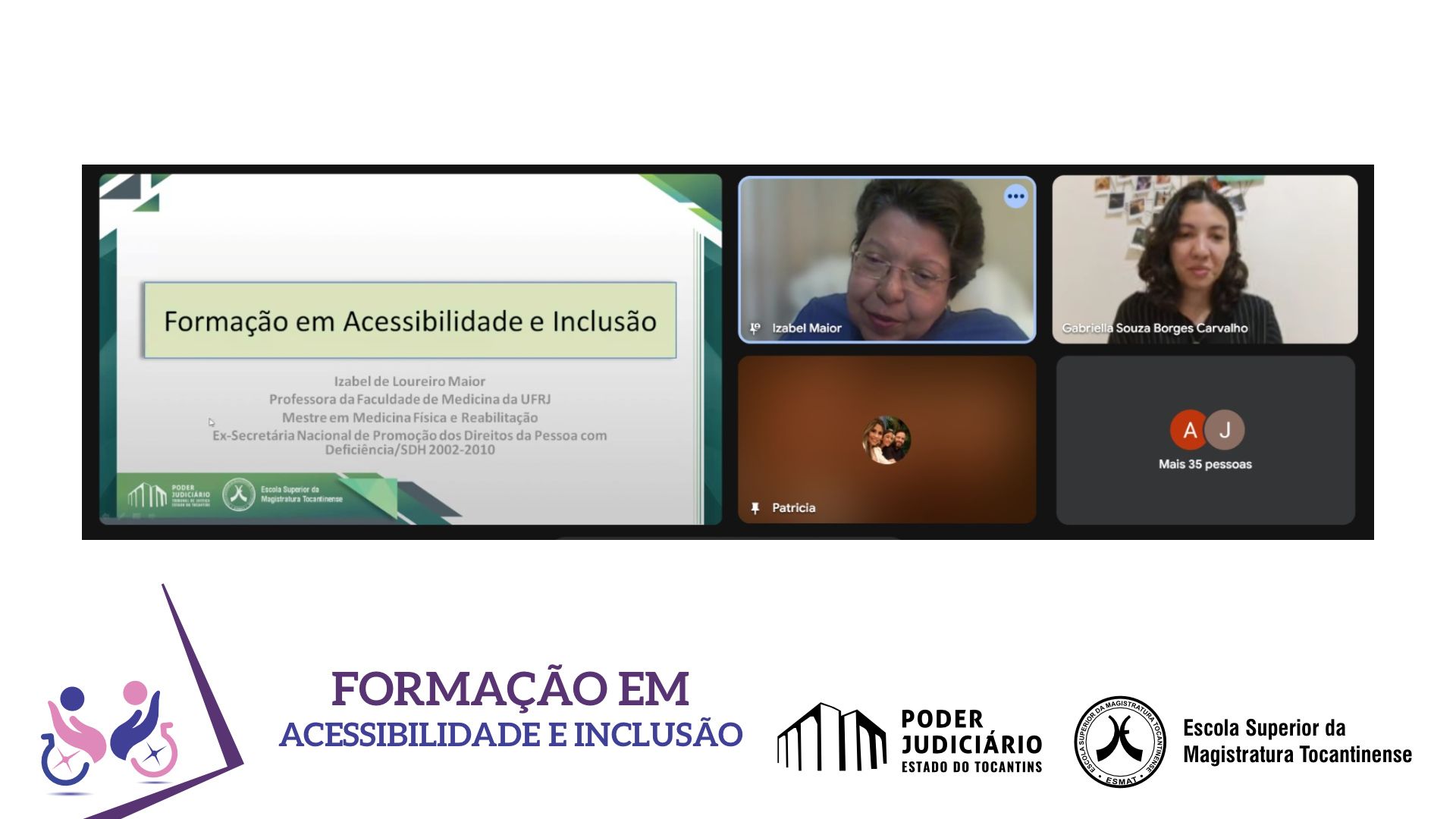
On Tuesday afternoon (June 24th), the Training in Accessibility and Inclusion, promoted by the Superior School of the Judges of the State of Tocantins (Esmat) in partnership with the Permanent Commission for Accessibility and Inclusion (CPAI), with the support of the Court of Justice of the State of Tocantins (TJTO), began.
The training aims to expand knowledge about accessibility and inclusion and strengthen judicial and administrative actions that ensure the rights of people with disabilities. The first webinar was given by Physiatrist Izabel Maior, one of the main references in the fight for the rights of people with disabilities in Brazil. She holds a master's degree in Physical Medicine and Rehabilitation from the Federal University of the state of Rio de Janeiro (UFRJ) and specializes in Neurology from PUC-Rio.
Izabel is a disabled woman and she has been directly involved in formulating public policies and in the process of regulating the UN Convention on the Rights of People with Disabilities in Brazil.
With a critical approach based on historical, social and legal evidence, the professor recalled the fundamental concepts of disability, accessibility, inclusion and equity, relating them to the regulatory frameworks and the struggle of social movements in recent decades.

"At this fortunate moment, the Brazilian state is concerned with providing conditions for adequate participation, equality and opportunity for people with disabilities who need Brazilian justice. When I was 22 years old, in 1976, there was almost nothing, not even legislation in our country about people with disabilities," she recalled.
Izabel shared her personal and professional experience to contextualize the evolution of the concept of disability, from the biomedical model to the social model, and highlighted the role of the Convention on the Rights of People with Disabilities (CRPD/UN) as a civilizational milestone.
Opening
The class was opened by the server Eva Portugal from the TJTO, who highlighted the importance of continuous training.
"We know that building an accessible Judiciary requires much more than physical structures, it requires a change in culture. And this change is only possible by raising awareness and training those who work in the Justice System," she said.
Present at the class, Patrícia Idehara, executive secretary of CPAI, recalled that the TJTO offers specific accessibility services, such as Libras interpreters for hearings, trial sessions and meetings, as well as the presence of translators and subtitles at judicial events.
During the class, a video was also shown about the use of the Brazilian Sign Language (Libras) in Psychology, produced by the project of the Catholic University Center of the state of Tocantins. On the occasion, Gabriella Souza Borges Carvalho, a third-year Psychology student at UniCatólica, shared her internship experience at APAE and her dedication on studying Libras on her own.
About the training
The course is coordinated by Justice Ângela Issa Haonat and Patrícia Idehara, and it runs until July 11th. The next modules will be taught by Joelson Dias (former substitute minister of the TSE), Priscilla Selares (lawyer and superintendent of Semeped) and Thiago Helton (lawyer specializing in the rights of people with disabilities).
With a total workload of 20 hours, the training is organized into five modules and adopts a human rights approach as its theoretical basis, highlighting the principles of the UN Convention and the Resolution 401 of the CNJ of 2021.